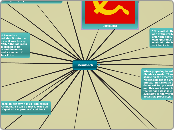door sienna beal 12 jaren geleden
1158
Steinbeck
John Steinbeck's work is characterized by his deep empathy for the working class and his profound frustration with societal injustices. He aimed to evoke strong emotional responses in readers through rhythmic and symbolic prose, which he believed could open them up to deeper intellectual insights.









